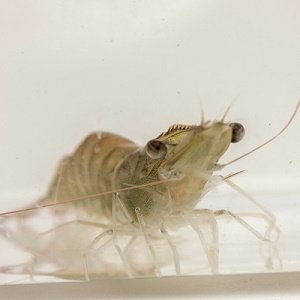
The fish microbiome plays a fundamental role in maintaining host homeostasis, with many bacterial functions directly linked to host health. Infectious diseases pose a significant challenge to the growth of the aquaculture industry. Numerous studies have focused on the dynamics of fish microbiomes, especially in the case of bacterial infections.
As research into fish microbiomes advances, particularly in the context of aquaculture, where various stressors can disrupt the stability of host-associated bacteria, it is essential to understand the signals of dysbiosis in various fish mucosae and their relationship with these stressors.
In this regard, researchers from the University of Porto and Aqualvor reviewed studies that employed culture-independent approaches to assess the effects of diseases, chemotherapy, and changes in water quality on various diversity metrics of intestinal, cutaneous, and gill microbiomes.
Dysbiosis in Fish Microbiomes
Dysbiosis refers to an imbalance in the composition of the microbiome that can have detrimental effects on fish health. Understanding the signals of dysbiosis in fish mucosae is crucial for aquaculture and future research. Various studies have used culture-independent approaches to assess the effects of diseases, chemotherapy, and changes in water quality on the diversity of gill, skin, and gut microbiomes.
Indicators of Dysbiosis in Fish
The results of these investigations suggest that an increase in the abundance of potential pathogens and changes in the bacterial community structure are reliable indicators of dysbiosis in fish.
The intestinal microbiome was found to be highly susceptible to changes in salinity and the use of chemotherapeutics, while the external microbiome appears to be more vulnerable to dysbiosis caused by diseases and temperature fluctuations.
Effects of Chemotherapeutics and Water Quality
Previous studies have reported that the effects of antibiotics on animal microbiomes depend on factors such as the class of antibiotics, dosage, and duration of treatment.
The analysis revealed that treatments with tetracyclines and florfenicol are more likely to induce severe dysbiosis compared to quinolones and disinfectants, which cause fewer disruptions to fish microbiomes. Additionally, bacterial diseases, especially enteritis, often trigger severe dysbiosis, whereas parasitic diseases have a lesser impact.
Regarding changes in water quality, only alterations in salinity and temperature, and their effects on fish microbiota, have been reasonably studied.
Stay Always Informed
Join our communities to instantly receive the most important news, reports, and analysis from the aquaculture industry.
Metagenomics for Health Monitoring in Aquaculture
Recent innovations in metagenomics, which include fast delivery of results, can be used to detect changes in fish homeostasis during critical periods of aquaculture production. These tools can assist in aquaculture management by providing precise and timely information about fish health.
Conclusion
The fish microbiome plays a crucial role in the health and well-being of fish in aquaculture. Understanding the signals of dysbiosis and how they relate to stressors such as diseases, chemotherapeutics, and water quality changes is essential to ensure fish health in the aquaculture industry.
According to the scientists, the published results show that decreases in intraindividual microbial diversity (alpha diversity) are generally not a good indicator of dysbiosis in fish.
“We conclude that an increase in the abundance of potential pathogens and changes in the bacterial community structure are suitable indicators of dysbiosis in fish,” reported the researchers.
The study was funded by the FCT-Fundação para a Ciência e a Tecnologia.
Contact
Raquel Xavier, CIBIO, University of Porto, Vairão Campus, 4485-661 Vairão, Portugal
Email: raq.xavier@cibio.up.pt
Reference (open access)
Xavier, R, Severino, R, Silva, SM. Signatures of dysbiosis in fish microbiomes in the context of aquaculture. Rev Aquac. 2023; 1-26. doi:10.1111/raq.12862
Editor at the digital magazine AquaHoy. He holds a degree in Aquaculture Biology from the National University of Santa (UNS) and a Master’s degree in Science and Innovation Management from the Polytechnic University of Valencia, with postgraduate diplomas in Business Innovation and Innovation Management. He possesses extensive experience in the aquaculture and fisheries sector, having led the Fisheries Innovation Unit of the National Program for Innovation in Fisheries and Aquaculture (PNIPA). He has served as a senior consultant in technology watch, an innovation project formulator and advisor, and a lecturer at UNS. He is a member of the Peruvian College of Biologists and was recognized by the World Aquaculture Society (WAS) in 2016 for his contribution to aquaculture.







